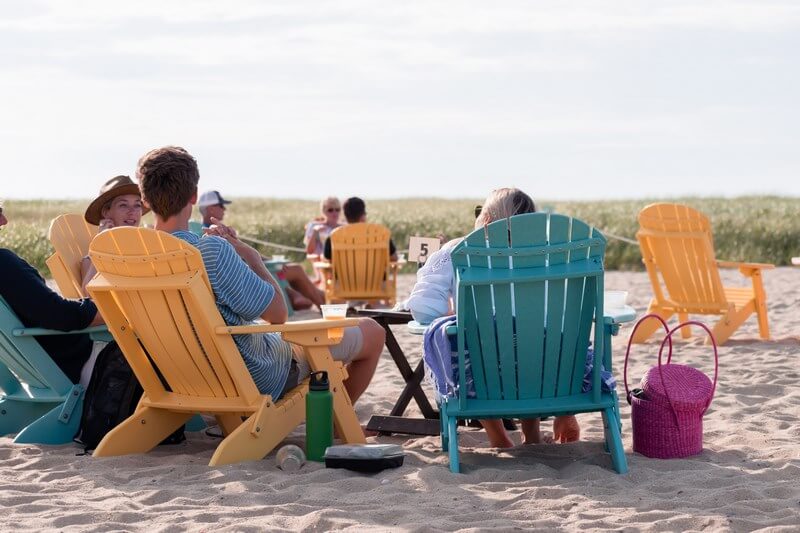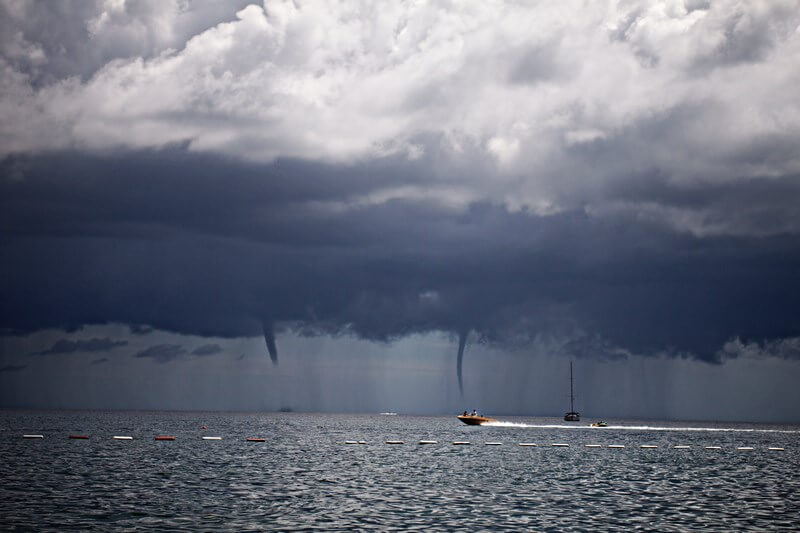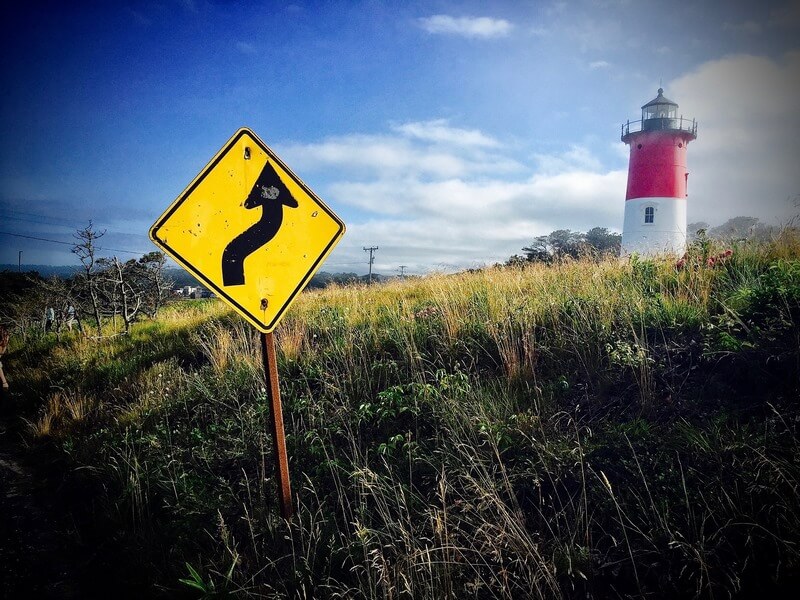
Three Tornadoes and Sharks on Cape Cod
Unplanned disaster events: tornadoes and sharks. Summer on Cape Cod this year is an exciting one for disasters. Know for its idyllic beaches, busy tourist season and a haven for elderly retirees Cape Cod is usually a sleepy place. Sure, it gets hectic in the summer when the population increases by 50%, but we handle that.
The Cape is known for destination spots like Martha’s Vineyard, Provincetown, and Chatham. So, year-round residents expect to share it with visitors during the summer season. We didn’t expect to be visited by three tornados in one day and a bunch of great white sharks trolling the local beaches.
Preservation efforts have resulted in an explosion of the seal populations which frequents Cape Cod beaches during this time of year. We have done such an excellent job with the (now) overabundance of seals that the sharks have followed. And yes, the Cape is the backdrop for the classic Jaws movie, but until recently sightings of the world’s most feared shark were few here. Not anymore.

Tourists don't expect a side-order of Tornado
Until July 23rd, Cape Cod had only experienced three tornadoes in its history. One in 2018 and the two others in 1968 and 1977. None of them did enough damage that they were considered significant disaster events for the Cape. So, a tornado is an unexpected natural disaster for this area.
I observed waterspouts over the Cape Cod Canal on occasion, but those were small and stayed on the water. The tornadoes last month caused extensive damage from Mashpee to Harwich. The accompanying storms knocked out power to over 50,000 people in the area. Cape Codders are used to the power being knocked out, but it’s usually because of a wintertime Noreaster, not during the middle of summer.
Visitors to Cape Cod certainly didn’t expect to experience such violent storms during their vacations. They don’t expect tornadoes or sharks. One motel, the Cape Sands Inn, had its entire roof blown off by one of the tornadoes’ impact. You can see pics of the damage here. Amazingly, there were no injuries, and that may be good news for tourism.

Waterspouts that became Tornados
People come to Cape Cod from all over the world. Although high-end EF-1 tornadoes, they caused the worst damage to the towns of Harwich and Chatham. It appears that one of the three started as a waterspout near Kalmus Beach and came ashore. All three were the result of a supercell thunderstorm.
At my home on the other end of the Cape, we experienced a massive thunderstorm the night before the hit a neighbor’s house. It caused enough damage that they are still out of their home, with repairs ongoing. The storms were the worst I’ve seen in my time here.
Not only was power knocked out by the tornadoes the next day but it remained out for many until the end of the week. On top of the inconvenience of hot having power, the Cape was suffering from an ongoing heatwave. In typical New Englander fashion, most dealt with the challenges with the wry humor and a resolve people are known for here.
People in this area have a long history of resilience and preparedness. July’s events were an excellent reminder to be prepared for anything. It’s something some have forgotten of late, and it should spur people to make planning for the unexpected a common occurrence again. The oldtimers remember how their grandparents always kept extra food and supplies on hand for winter blizzards, power outages, and other calamities. It wasn’t so long ago here that residents didn’t rely on utilities or grocery stores but kept their pantries and homes stocked with extra necessities to survive.

Are wild animal population explosions disasters?
As I mentioned earlier, sharks are drawn to Cape Cod’s shores in increasing numbers of late. There is a simple reason for it–their favorite food source; seals are here too — lots of them. Environmental protection for seals have resulted in a return of the population, and with that success comes the sharks.
It’s a double-edged sword for advocates of both the seals and sharks because as a major resort area, Cape Cod relies on its tourism dollars. A debate is raging in the towns here about what to do about it. Do we cull the seal population, making it less attractive to the sharks? Or, do we continue on this path and risk lives of the locals as well as visitors?
Regardless of what path local government takes, their decisions will have consequences. Some people are creating shark ecotourism businesses. Others are selling shark merchandise. Cape Cod is not the only place on earth dealing with man’s well-meaning interference in the natural order of things that has unintended consequences.

Your mother told you to be prepared for anything
All of this gets back to my earlier comments about how people used to live here. A hearty New England bunch, Cape Codders are known for their ingenuity and self-reliance. They understood the along with the benefits of living in such a beautiful place came not having the amenities of metropolitan areas.
People still try to keep it that way. There is a conscious effort to keep Cape Cod’s historic charm, and it is still a rural place. The Cape has a history of local farms and agriculture dating back to the first settlers. Although large-scale farming doesn’t exist except for cranberry bogs, many still have gardens and chicken in their backyards. Although half of the properties here are second homes for vacationing non-residents, those that do live here year-round keep to old traditions.

The beaches are still worth visiting
Being prepared for the unexpected or known disasters is not a bad thing. The large scale clean-up complete, and electricity is back. Listening to the traffic reports for the two bridges on to the Cape, it doesn’t sound like the tornadoes or sharks have deterred tourists from visiting.
That is good because the beaches are beautiful, the seafood is fresh, and your side-order of fried claims is waiting. If you visit, just be prepared for the unexpected and practice proper travel preparedness. If you live here, try to make sure your event preparedness includes for your family, home, and car. We all should have disaster kits no matter where we are.
Just like I wrote in my blog, California Earthquakes – All Disasters Are Local, each place has its event norms and culture. Cape Cod has a long history of crisis events but not always ones that make the national news. This year it is our turn, but that doesn’t mean we won’t bounce back from them. Events like these remind me that just when I think my role is to observe things that happen elsewhere, I find I can look to my own backyard for inspiration. So, I’ll be planning for unplanned disaster events: tornadoes and sharks.
